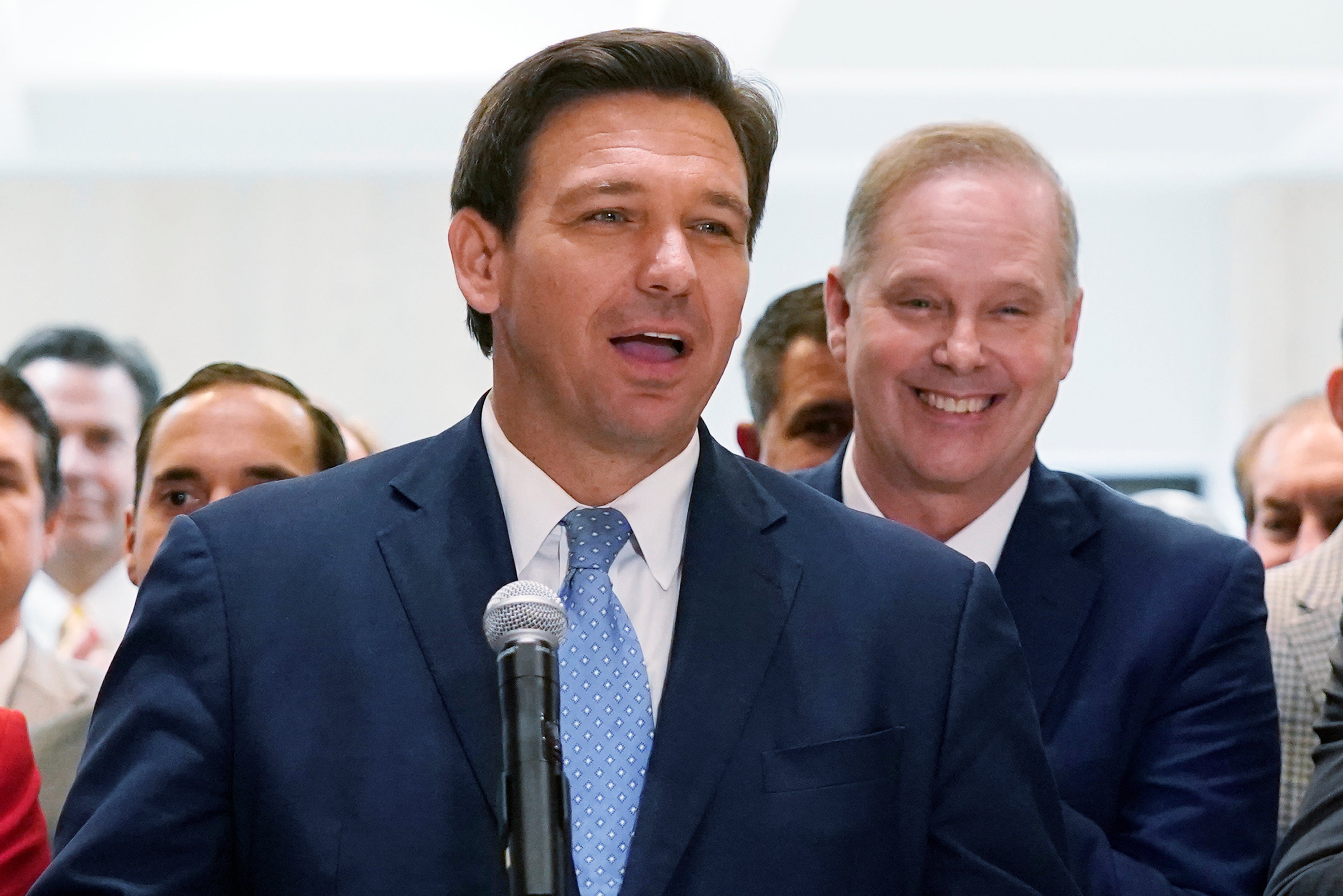Florida bans 'critical race theory' from its classrooms
Florida has become the latest state to ban “critical race theory” from its public schools

Your support helps us to tell the story
From reproductive rights to climate change to Big Tech, The Independent is on the ground when the story is developing. Whether it's investigating the financials of Elon Musk's pro-Trump PAC or producing our latest documentary, 'The A Word', which shines a light on the American women fighting for reproductive rights, we know how important it is to parse out the facts from the messaging.
At such a critical moment in US history, we need reporters on the ground. Your donation allows us to keep sending journalists to speak to both sides of the story.
The Independent is trusted by Americans across the entire political spectrum. And unlike many other quality news outlets, we choose not to lock Americans out of our reporting and analysis with paywalls. We believe quality journalism should be available to everyone, paid for by those who can afford it.
Your support makes all the difference.Florida s state Board of Education banned “critical race theory” from public school classrooms on Thursday, adopting new rules it said would shield schoolchildren from curricula that could “distort historical events.”
Florida's move was widely expected as a national debate intensifies about how race should be used as a lens in classrooms to examine the country's tumultuous history.
Republican Gov. Ron DeSantis appeared by video at the top of the meeting, urging the members, many of whom he appointed, to adopt the new measures that he suggested would serve students with the facts rather than “trying to indoctrinate them with ideology.”
The Black Lives Matter movement has helped bring contentious discussions about race to the forefront of American discourse, and classrooms have become a battleground. Supporters contend that federal law has preserved the unequal treatment of people on the basis of race and that the country was founded on the theft of land and labor.
Opponents say schoolchildren should not be taught that America is fundamentally racist. Governors and legislatures in Republican-led states around the country are considering or have signed into law bills that would limit how teachers can frame American history.
Both sides accuse the other of politicizing classroom instruction and violating the free speech rights of countless people by limiting the allowable points of view.
Florida law already requires schools to provide instruction on a host of fundamentals, including the Declaration of Independence, the Holocaust and African American history, but the topics have often been muddled. Current events, including the killings of Black people by police, have intensified debates.
During his brief appearance Thursday, DeSantis called it “outrageous” how some instructors are deviating from what he and others consider the fundamentals of history.
“Some of this stuff is, I think, really toxic,” DeSantis told the school board. “I think it’s going to cause a lot of divisions. I think it’ll cause people to think of themselves more as a member of particular race based on skin color, rather than based on the content of their character and based on their hard work and what they’re trying to accomplish in life.”
The Florida Education Association called on the board to reject the proposal.
“Students deserve the best education we can provide, and that means giving them a true picture of their world and our shared history as Americans. Hiding facts doesn’t change them. Give kids the whole truth and equip them to make up their own minds and think for themselves,” the union's president, Andrew Spar, said in a statement earlier this week.
The association, which represents teachers across Florida, called on the board to at least strip inflammatory language from the proposed rules. A particular sore point is the use of “indoctrinate” in the rule, which the union says presents an overly negative view of classroom instruction. That word, however, remained in the rules adopted by the board.
DeSantis specifically criticized the 1619 Project, a classroom program spawned by a New York Times project that focuses on teaching about slavery and African American history. The project’s name refers to the year popularly believed to be when slaves were first brought to colonial America. DeSantis charged that the program distorts U.S. history by contending that the American Revolution was instigated to preserve slavery.
The journalist behind the project, Nikole Hannah-Jones, at the center of a controversy over the University of North Carolina-Chapel Hill's decision not to grant her tenure.